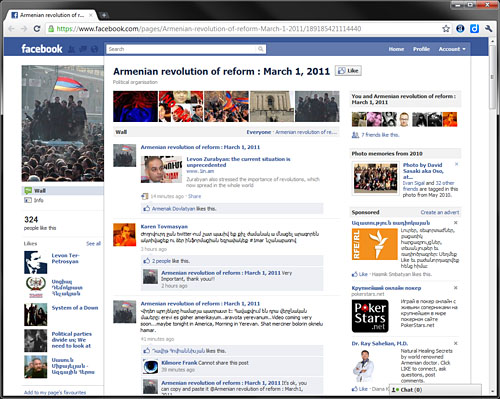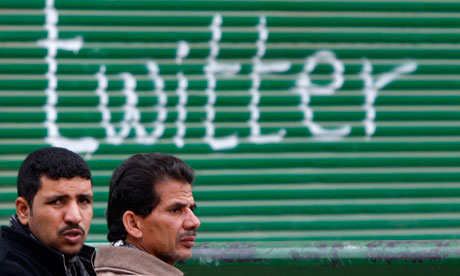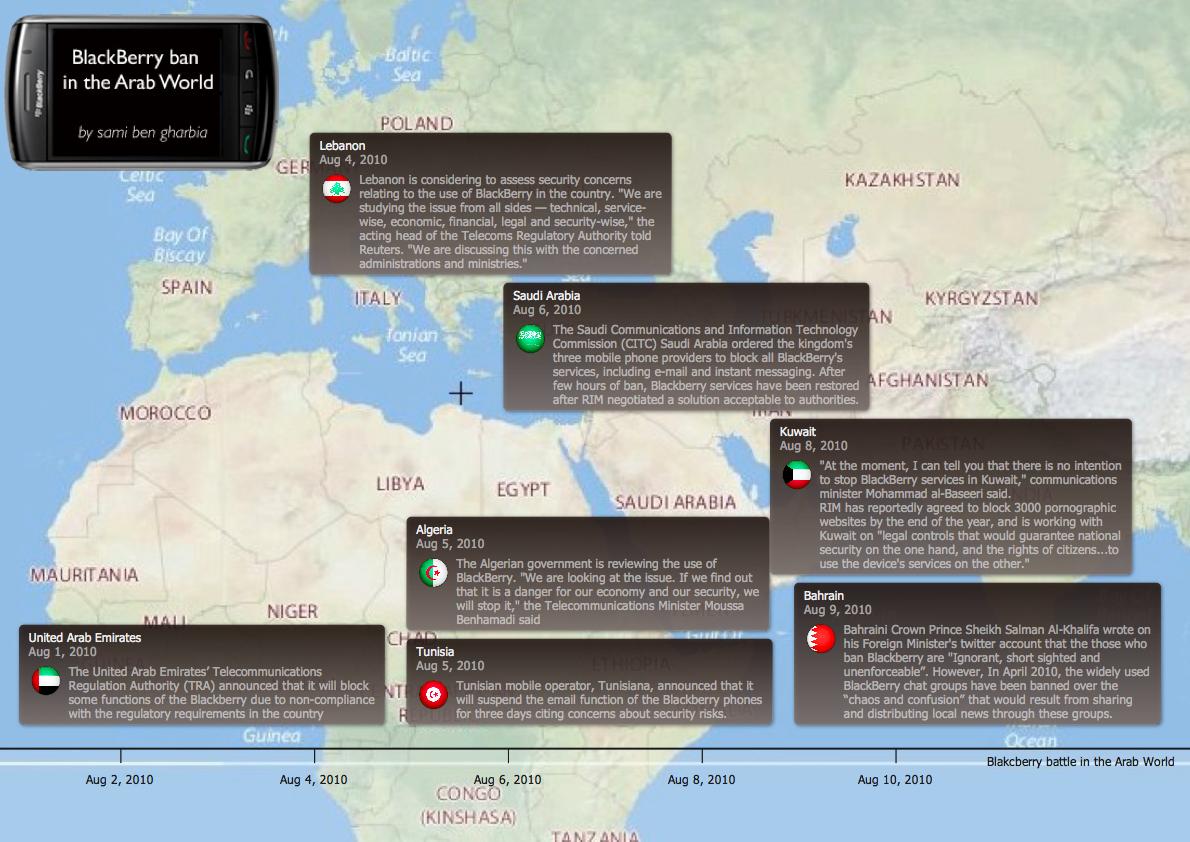Internet technology is a tool for political change in Arab world
The revolts in Tunisia, Egypt and Yemen are driven by deep dissatisfaction with authoritarian regimes, but Internet technology has played a crucial role as a 21st-century weapon for democracy movements, experts say.


Inspired by the recent overthrow of the Zine El Abidine Ben Ali dictatorship in Tunisia, citizen activists on Thursday escalated their protests in Egypt and Yemen, denouncing their respective governments. And social media played the dual role of a virtual town square where protest leaders rally the masses and counter government disinformation.
Services such as Twitter and Facebook are "playing an increasingly large role in almost any mass protest around the world," said John Palfrey, a law professor at Harvard University who studies limits on Internet expression. "We will see more of this."

The demonstrations in Egypt, where the government completely shut down the Internet late Thursday, "were started primarily by the April 6 Movement, which was basically a Facebook campaign that started in 2008 and called for protests about workers' rights," said Lina Khatib, a Stanford University expert on Arab reform who was in Cairo on Thursday before leaving for Paris.
During the latest unrest, Twitter became an instant information tool, she said: "People were spreading the news on Twitter. They would alert people where demonstrators were gathering."
But it is long-simmering anger against authoritarian governments that is sending
unarmed protesters against police and soldiers."What has already happened in Tunis and may be happening right now in Cairo and Tripoli is a revolution that uses social media, but is not a revolution caused by social media," said Clay Shirky, a professor at New York University's Graduate Interactive Telecommunications Program.
Most of the Egyptian protesters have probably never used the Internet. But Internet-savvy elites were the catalyst for the demonstration, Khatib said.
"The reason why it was so effective is because of what happened in Tunisia," she said. "They saw it on TV. They heard about it. It was the first time a civilian uprising had torn down a regime in the Arab world."
Technology's role in organizing opposition has not been lost on the governments of that volatile region.
In Cairo, by late Thursday phone service was cut, Twitter and Facebook were blocked and a media blackout was in place, Khatib said. "The government knew people would be coordinating their movements to join the demonstration," she said.
Egypt is far from alone in seeing the Internet and other new technology as threats. The number of countries censoring or blocking at least some Internet content has increased from two about 10 years ago to three dozen now, Palfrey said.

Iran, for example, blocked access to Facebook for fear it was being used to help facilitate street protests over the disputed presidential election in 2009, and the Palo Alto company said it saw its traffic from Iran drop in half. The Chinese government, beginning with the 2008 Summer Olympics, began applying even more controls to the Internet. Facebook, Twitter and YouTube are blocked by the communist government.
Facebook said in a statement Thursday: "We are aware of reports of disruption to service and have seen a drop in traffic from Egypt." San Francisco-based Twitter, which did not comment directly on the blocking of its service, said in a tweet, "We believe that the open exchange of info & views benefits societies & helps govts better connect w/ their people."
The Obama administration has taken a more aggressive stance against Internet censorship than previous administrations, Palfrey said.
On Wednesday, U.S. Secretary of State Hillary Clinton urged Egypt "not to prevent peaceful protests or block communications, including on social media."
But the uprising in Egypt, a longtime ally of the United States, puts President Barack Obama in a tough situation, and it's unclear how much pressure he will ultimately apply on Egyptian President Hosni Mubarak, Khatib said.

"For the U.S., this is a test: Who do you really care about most?" she said. "The leaders in the Arab world, who are your allies, or the people who are calling for the same values you are supposed to represent?"
Jacob Appelbaum, a San Francisco programmer with the longtime open-source Tor Project, a program that cloaks the identity of users that is popular with corporations and free-speech activists alike, cautioned against "cyberutopia." The very technology used by democracy advocates can also be used to trap them, he said.
"The unblocking of Twitter may not be a good thing," Appelbaum said, unless protesters use a cloaking service. "It seems good on its face. But if the regime does not fall, it could hunt down everyone who uses Twitter."






Post a Comment